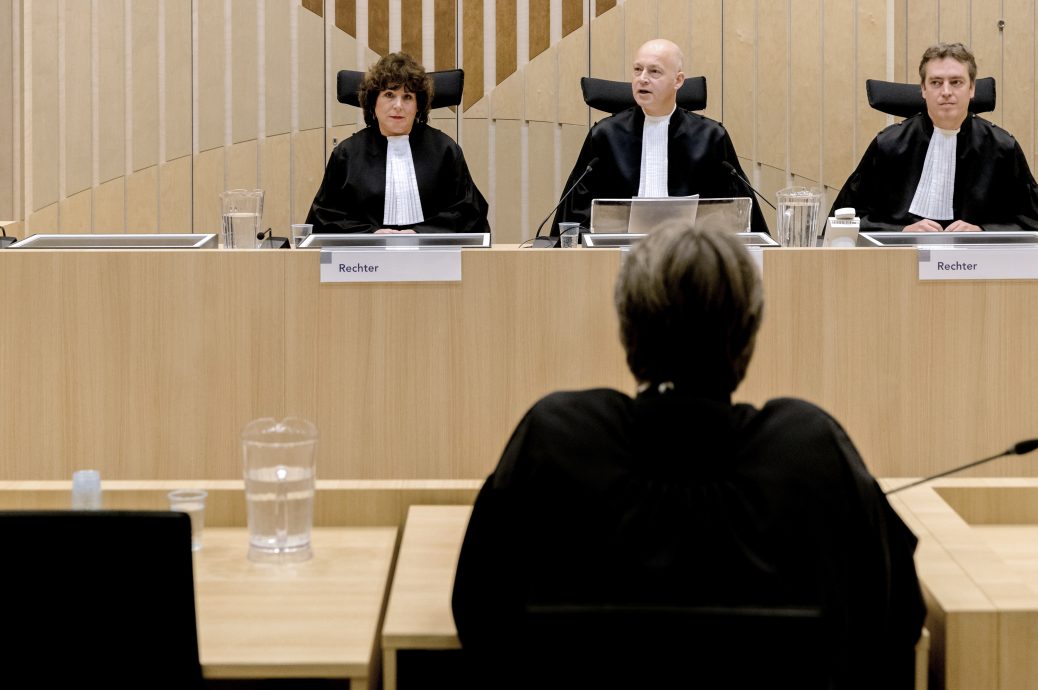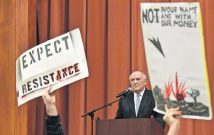Tolerance and Its Limits
When I asked my young patients what their best qualities were, they would almost invariably reply: “I am tolerant and non-judgmental.”
“If you don’t judge people,” I would ask, “how can you be tolerant?”
They did not grasp at once what I meant, so I would explain:
“If you disapprove of nothing, there is nothing to tolerate. You do not tolerate what you like or agree with; you tolerate what you dislike or disagree with. If you make no judgments, tolerance is redundant, there is nothing to tolerate.”
The misunderstanding of what tolerance is the explanation, perhaps, of a paradox: the more we extol tolerance as a virtue, the less tolerant we become. We become like the humourless man who says that he has a wonderful sense of humor.
Back in the 1960s, the philosopher Herbert Marcuse popularised the notion of “repressive tolerance.” According to this notion, the freedom to express any opinion without fear of retribution actually resulted in, or at any rate served, repression because it duped people into supposing that they were free. Yes, they could say anything they liked, but in practice they lived in a society in which they decided nothing for themselves and in which they were straitjacketed by laws, conventions, moral codes and so forth, all to the material benefit of a small elite, of course (Marcuse was some kind of Marxist). This notion, which was expressed in the dullest of prose, was appealing to utopian adolescents who a) wanted to deny that they were the most fortunate generation who had ever lived, and b) dreamed of a life completely without restraints on their own pleasure.
Half a century later, “repressive tolerance” is taking on a different meaning, one that actually has some practical application. It is repression carried out in the name of tolerance.
In the Netherlands, the politician Geert Wilders has been found guilty of contravening two related provisions of the criminal code: inciting to discrimination, and expressing hatred toward a racial group. In his decidedly populist fashion, Wilders asked the crowd that he was addressing whether they wanted more or less interference in Dutch affairs from the European Union, more or less power for the Dutch Labor Party, and more or fewer Moroccans. Like a shrewd advocate, he knew in advance how his listeners would respond.
There is no jury trial in the Netherlands. A judge alone decides the guilt or innocence of an accused person. To the already loose and somewhat sinister charges themselves was thus added the prejudice of the judge, overwhelmingly likely in the Netherlands to be politically correct. And the judge, to no one’s surprise, found Wilders guilty. But the Netherlands being the Netherlands, the punishment was less than severe: the judge held that the mere fact of being found guilty was punishment enough for the wayward politician.
Nevertheless, Wilders is going to appeal. From his point of view the more publicity he can give to the case, the better for his cause. It will do him no good, however, at least if his aim is political power rather than acting as a gadfly on the periphery of Dutch politics. For even if he should emerge as the political leader with the most votes in the general elections slated for March, he will never have, under the Dutch system of proportional representation, an absolute parliamentary majority and he will never be able to form, or even participate in, a government. The most he can hope for is to change the nature and subject matter of Dutch political debate.
In order to secure the conviction, the judge had to maintain that the Moroccans were a race, because the law did not recognize nationality or national origin as grounds for legal protection from insult and critical comment. This gave rise to a certain amount of hilarity. If nationality were to be confounded with race, Dutch law would henceforth have to recognize a Belgian race, a Swiss race, et cetera.
But the very idea that there are certain groups in need of special protection from offence is both incoherent and condescending, partaking of the very qualities that the idea is supposed to be eliminating from the wicked human mind. The number of human groups that have, or could be, subjected to humiliation, discrimination, or worse is almost infinite. Persecution on economic grounds, for example, has been at least as frequent as persecution on racial grounds. To select a few groups for special protection is therefore irreducibly discriminatory. It is a little like protecting certain species from the ravages of hunters because they are threatened with extinction and unlike other species are unable to protect themselves by fecundity, say, or by camouflage.
This is not to say that all things that should be allowed to be said without legal penalty ought to be said. There must always be a distinction between legal and moral permissibility—a distinction which, with the relentless advance of the administrative state, is in danger of being lost, so that people now say, when justifying morally dubious behavior, “There’s no law against it, is there?”
When Wilders, then, asks a crowd whether it wants more or fewer Moroccans in the Netherlands, I immediately try to put myself in the position of a young Moroccan, or Dutch citizen of Moroccan descent, and imagine what it is like to be regarded by a popular politician, almost ex officio, as a nuisance or a plague, even though all I want to do is to fit in with the wider society around me. I think it takes very little imagination to understand how uncomfortable it would be.
At the same time, it would be incumbent upon me as an immigrant or descendent of an immigrant to try to understand why the majority population might not want their society to be fundamentally altered by immigration and why they might be in favor of a limitation of numbers of immigrants. In fact, it is by no means uncommon for members of immigrant groups themselves to wish such a limitation, for fear of provoking a reaction or backlash against them.
What is certain is that tact, and imaginative sympathy for others, cannot be legislated. The clumsy attempt to decree tolerance will inflame, and has inflamed, the very opposite.


